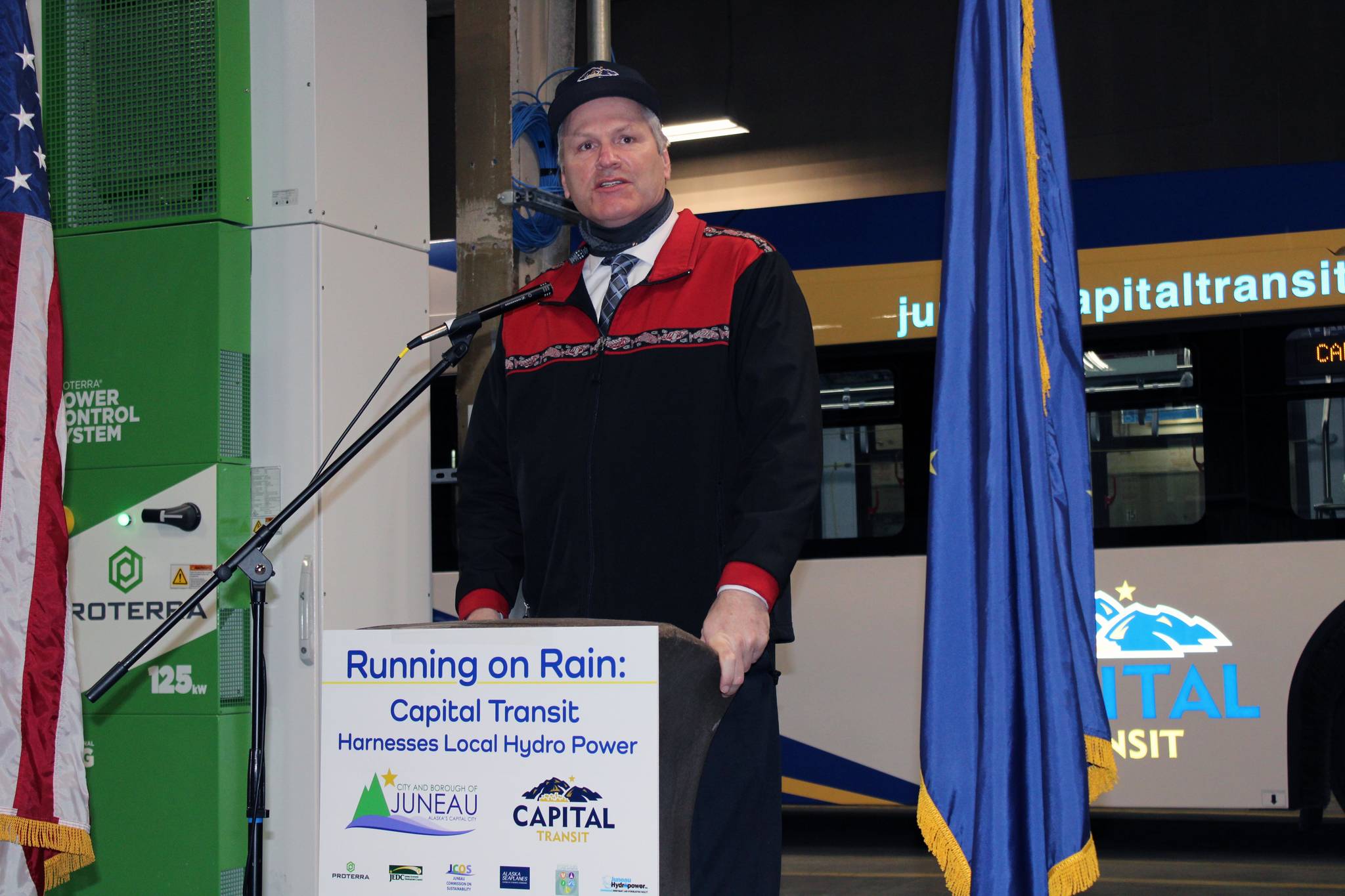Capital Transit has found a way to turn rain into rides by introducing the state’s first electric bus.
The bus, which will charge from Juneau’s hydroelectricity grid, took an inaugural spin on the city’s snowy streets Thursday.
The ride was part of a ribbon-cutting ceremony attended by state and local officials, including Gov. Mike Dunleavy, state Sen. Jessie Kiehl, Juneau Mayor Beth Weldon and Alaska Department of Transportation and Public Facilities Commissioner John MacKinnon.
U.S. Sen. Lisa Murkowski, who called the bus’s introduction “a great step forward for Juneau,” appeared in a video message at the event.
The bus will officially go into service next week, servicing the Mendenhall Express route, the city said in a news release.
Leading the charge: City welcomes fleet’s 1st electric bus
Because the bus is powered by hydroelectricity, Weldon said the bus will “run on rain,” a plentiful resource in Juneau.
“This bus will get people to work, get people to school and get them where they need to be,” she said.
According to Weldon, Juneau will eventually run a fleet of 18 electric busses. She said that funding for the next seven busses has already been awarded.
“This is a great beginning,” Dunleavy told the Empire before the ceremony. “If there’s one thing the pandemic taught us, it’s that Alaska has to be as independent as possible. We may be on our own at times, and we must provide for ourselves.”
He noted that Juneau locally generates low-cost electricity.
During his remarks, Dunleavy said the electric bus is a “terrific bargain” as it only costs about 5 cents a kilowatt-hour to charge the 40-foot vehicle, which seats 40 people and can accommodate larger standing crowds if needed.
“Based on cheap electricity and with the added benefit of clean air, this is a win-win across the board,” he said. “Congratulations to Juneau for doing something very special for Alaska and Juneau.”
Kiehl said he’s happy that the electric bus means that his daughter and other riders won’t inhale diesel fumes at the bus stop.
“This is clean, green and fish-safe power. This is a huge success. This is the future,” Kiehl said.
With the batteries packed in the floor of the bus and a body made from carbon-fiber-reinforced composite material, the bus runs quietly and accelerates quickly, according to Mark Hollenbeck, regional sales director at Proterra, the company that manufactured the bus.
City kicks of the budget-review process
“Juneau is at the vanguard of the effort to have emissions-free public transportation,” Hollenbeck said. He said the bus doesn’t need oil changes, has fewer parts, and is easier and cheaper to operate than conventional busses.
•Contact reporter Dana Zigmund at dana.zigmund@juneauempire.com or 907-308-4891.

